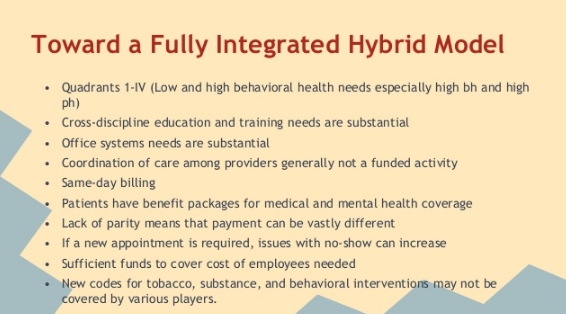Fixing the looming healthcare crisis with technology

HEALTHCARE IS UNDER PRESSURE FROM SEVERAL DIRECTIONS. CORILUS IS CONNECTING THE STAKEHOLDERS IN THE SYSTEM TO RADICALLY STREAMLINE PROCESSES.
Increasingly, elderly care is becoming a multidisciplinary task requiring coordination between rest and nursing homes, general practitioners, physiotherapists, nurses and pharmacies. As institutional care is extending towards home-based care, the need for efficient coordination among the various actors in the system will only increase. Corilus, a leading ICT-provider for healthcare professionals and rest homes, is aligning itself to eHealth with open standard solutions for managing processes that cross organisational boundaries.
Healthcare under pressure
We’re acutely aware of the fact that the healthcare sector is under pressure; it needs to adapt to a number of clear trends and challenges. Firstly, demand for healthcare services is gradually increasing and will continue to increase in the coming years. Partly this is due to the ageing of our population. Older people require more care and are more likely to suffer from chronic illnesses.
Even among younger people, however, the prevalence of chronic illnesses such as obesity and diabetes is increasing. In parallel to these trends healthcare is becoming increasingly high tech—which requires important investments. And the regulator is adding pressure too by raising the bar on quality control and the traceability of medication. These trends all combine to drive healthcare costs upward—just at a time when governments are trying hard to reduce spending. And just to top it all off, there is an increasing shortage of healthcare workers, especially nurses. The sector is under pressure to expand, but it is restricted in doing so due to a shortage of money and people. That’s why ICT is destined to play such an important role in healthcare by saving time and creating more efficiency.
With the Healthcare sector under pressure, it needs to adapt to a number of changes and technological developments to overcome the challenges. The cost from local GP’s to Glasgow orthodontist, hospital staffs to A&E departments are significantly increasing meaning these services will become more expensive as more nurses, doctors and dentists are hired to cope. With such a high demand technological innovation offers our healthcare system a solution to cope with the current crisis.

Toward a hybrid model of care
It is interesting to see how these trends play out in one of our core markets, Rest and Nursing Homes. At present elderly care is concentrated at the institutional level, at the rest homes. However, in the years and decades ahead we cannot meet rising demand simply by building more rest homes. At Corilus we believe that the system will move towards a more hybrid model where all actors in the elderly care system—GPs, rest homes, nurses, pharmacies, physiotherapists, etc—will coordinate their work around patients who remain at home.
Today rest homes already have a support function to home care, but this will become more intense in the years ahead. They’ll increasingly need to offer people day-care services or short-stay services. Also, we predict that rest homes will play a central role in the coordination and alignment of home care.
Be the First to comment.

HEALTHCARE IS UNDER PRESSURE FROM SEVERAL DIRECTIONS. CORILUS IS CONNECTING THE STAKEHOLDERS IN THE SYSTEM TO RADICALLY STREAMLINE PROCESSES.
Increasingly, elderly care is becoming a multidisciplinary task requiring coordination between rest and nursing homes, general practitioners, physiotherapists, nurses and pharmacies. As institutional care is extending towards home-based care, the need for efficient coordination among the various actors in the system will only increase. Corilus, a leading ICT-provider for healthcare professionals and rest homes, is aligning itself to eHealth with open standard solutions for managing processes that cross organisational boundaries.
Healthcare under pressure
We’re acutely aware of the fact that the healthcare sector is under pressure; it needs to adapt to a number of clear trends and challenges. Firstly, demand for healthcare services is gradually increasing and will continue to increase in the coming years. Partly this is due to the ageing of our population. Older people require more care and are more likely to suffer from chronic illnesses.
Even among younger people, however, the prevalence of chronic illnesses such as obesity and diabetes is increasing. In parallel to these trends healthcare is becoming increasingly high tech—which requires important investments. And the regulator is adding pressure too by raising the bar on quality control and the traceability of medication. These trends all combine to drive healthcare costs upward—just at a time when governments are trying hard to reduce spending. And just to top it all off, there is an increasing shortage of healthcare workers, especially nurses. The sector is under pressure to expand, but it is restricted in doing so due to a shortage of money and people. That’s why ICT is destined to play such an important role in healthcare by saving time and creating more efficiency.
With the Healthcare sector under pressure, it needs to adapt to a number of changes and technological developments to overcome the challenges. The cost from local GP’s to Glasgow orthodontist, hospital staffs to A&E departments are significantly increasing meaning these services will become more expensive as more nurses, doctors and dentists are hired to cope. With such a high demand technological innovation offers our healthcare system a solution to cope with the current crisis.

Toward a hybrid model of care
It is interesting to see how these trends play out in one of our core markets, Rest and Nursing Homes. At present elderly care is concentrated at the institutional level, at the rest homes. However, in the years and decades ahead we cannot meet rising demand simply by building more rest homes. At Corilus we believe that the system will move towards a more hybrid model where all actors in the elderly care system—GPs, rest homes, nurses, pharmacies, physiotherapists, etc—will coordinate their work around patients who remain at home.
Today rest homes already have a support function to home care, but this will become more intense in the years ahead. They’ll increasingly need to offer people day-care services or short-stay services. Also, we predict that rest homes will play a central role in the coordination and alignment of home care.
